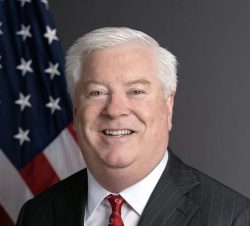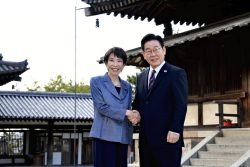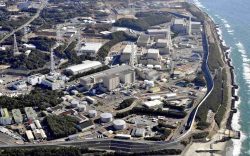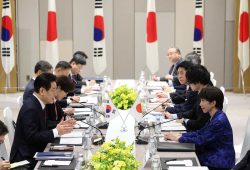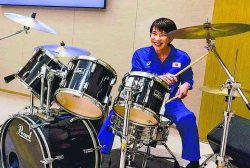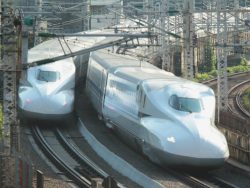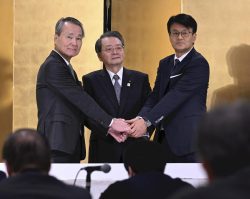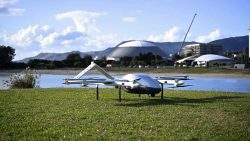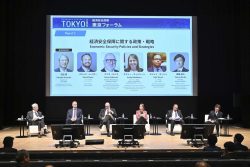15:04 JST, March 11, 2021
LOS ANGELES — John Roos, who was the U.S. ambassador to Japan at the time of the 2011 Great East Japan Earthquake and devoted himself to supporting the disaster-stricken areas, told The Yomiuri Shimbun that the experiences from the disaster will benefit the bilateral relationship for years to come.
“I believe that the fact that the U.S. was able to help Japan in its time of need, in its biggest crisis since World War II, will pay dividends for years in the relationship between the U.S. and Japan,” Roos said in an online interview, expressing hope for a deeper relationship between the two countries.
Roos said the message from then U.S. President Barack Obama was clear at the time.
“It was, ‘This is a humanitarian crisis. Japan is our closest friend and ally in the Asia-Pacific region. Do whatever needs to be done,’” Roos said. “There wasn’t any budgetary constraints, any equipment constraints, military constraints.”
In the wake of the tsunami and the accident at Tokyo Electric Power Co.’s Fukushima No. 1 nuclear power plant, Roos said the initial challenge was to share information between Japan and the United States.
“I think that the Japanese government had its hands full at the time. They were also trying to get real-time information,” he said. “And in a situation like that, where there are so many moving parts, and everyone is doing the best they can to really find out what was going on up in the Tohoku region, it’s understandably challenging to get in place a process that everyone’s working on from the same information.”
Roos said the U.S. government analyzed satellite photos and provided Japan with advice from nuclear experts.
While the Japanese government issued an evacuation advisory in the area within a 20-kilometer radius of the nuclear plant, the U.S. government issued an evacuation advisory for Americans living within a 50-mile (about 80-kilometer) radius.
Roos said the United States did so based on expert judgments from the viewpoint of protecting the health and safety of civilians.
At the same time, the U.S. Embassy in Japan remained in Tokyo while some countries moved to temporarily close or relocate their embassies in Tokyo.
“And to tell the truth, what also made it a little more complicated was that the other countries were looking to us. And some decided to leave, but many were looking to the United States for our lead,” Roos said. “Given the deep relationship we have with Japan, the alliance relationship, the trust, the respect, everything that had been built up over years, it would have been a dramatic decision to leave.”
After the disaster, Roos devoted himself to establishing the Tomodachi Initiative, a partnership focused on nurturing the next generation of Japanese and American leaders. In the past 10 years, nearly 10,000 young people from Japan and the United States have participated in the program.
Roos said the disaster brought home to him the need for “kizuna” or bonds.
“I think what we, as Americans, can do — and hopefully have done — is to continue to strengthen the bonds between our two countries and particularly to heavily invest in young people,” he said.
The United States is also at risk of earthquakes.
“So let’s hope that doesn’t happen,” Roos said. “We may need Japan’s expertise if, God forbid, something like that were to happen. But I do believe that Japan would step up for us in the same way that we stepped up for Japan.”

John Roos
John Roos, U.S. ambassador to Japan at the time of the 2011 Great East Japan Earthquake, said in an interview the experiences from the disaster will benefit the Japan-U.S. relationship for years to come..
"Editorial & Columns" POPULAR ARTICLE
-
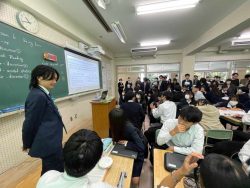
Artificial Intelligence Expands Possibilities for Foreign Language Learners
-

Build Intellectual, Physical Strength, As Well As Communicative Power / Japan Should Move from Beneficiary to Shaper of World Order
-

Global Economy in Turmoil: Prevent Free Trade System from Going Adrift / Risks to Financial Markets Must Be Heeded
-
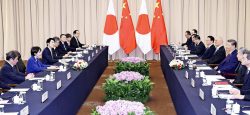
Japan-China Strain Set to Persist as Beijing Officials Self-Interestedly Bash Tokyo; Takaichi Unlikely to Back Down
-

French and German Ambassadors to Japan Call for Democracies to Unite in Defense against Russian Disinformation
JN ACCESS RANKING
-

As Chinese Tourists Shun Japan, Hotels and Stores Suffer
-

BOJ Gov. Ueda: Highly Likely Mechanism for Rising Wages, Prices Will Be Maintained
-
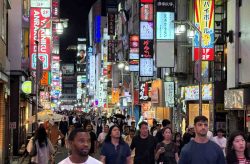
Core Inflation in Tokyo Slows in December but Stays above BOJ Target
-

Osaka-Kansai Expo’s Economic Impact Estimated at ¥3.6 Trillion, Takes Actual Visitor Numbers into Account
-

Japan Govt Adopts Measures to Curb Mega Solar Power Plant Projects Amid Environmental Concerns




